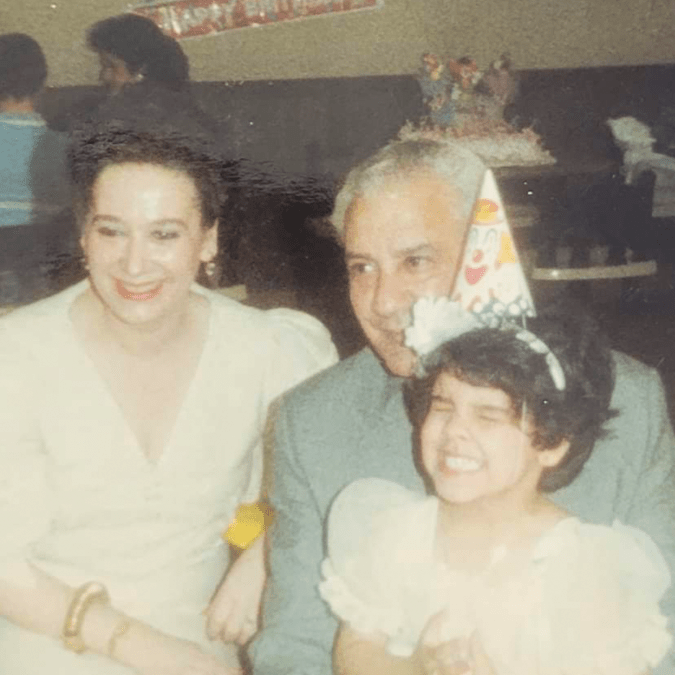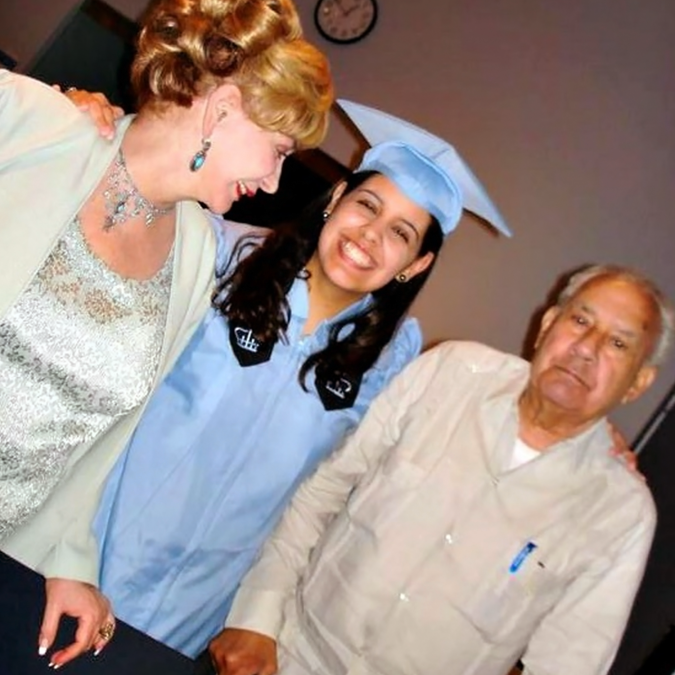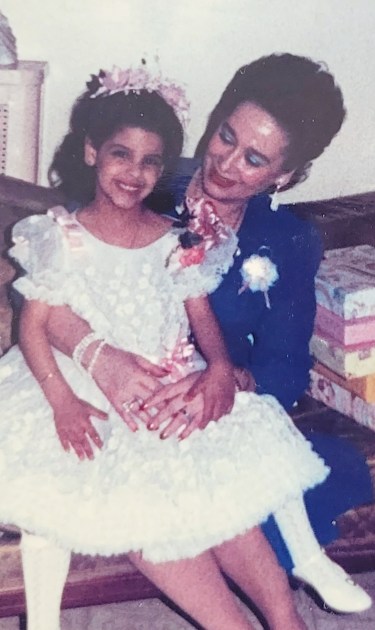Growing up, Spanish was the heartbeat of my home. I was born in Union City, New Jersey, dubbed Havana on the Hudson, to much older Cuban exile parents who made it their mission to ensure I was fluent in their native tongue, something they took pride in and wanted to impart to me.
Since there were few, if any, children’s books in my parents’ native tongue at local bookstores in the 1980s and ’90s, they instead brought home El Diario La Prensa, and other newspapers as they parsed through stories about death, taxes, and other gloomy topics to find the most kid-friendly articles I could practice reading. This became part of my language learning education.
Their fixation on my fluency in their native tongue hit a roadblock when I entered Kindergarten.
I vividly remember my first day at St. Augustine School in my hometown, where the teacher instructed, “Please pick up your books.” To my English-deficient ears, her words sounded like gibberish. It was only when she repeated the command in Spanish that I understood. My journey into ESL, then called English as a Second Language, began as I learned the unfamiliar language of my peers.


I could read, write, and speak English within the year. But despite the fluency I gained, my connection with Spanish stayed deeply rooted within me and that of my family. At home, the language continued to flow as I engaged in conversations with my parents, my abuela, and extended family in sunny South Florida, our go-to destination for summer vacations when I was a kid.
As an adult, like many bilingual individuals, I’ve found my mastery of Spanish helpful in my career. As a writer, communications professional, and college adjunct with nearly 20 years of combined experience, I’ve used my Spanish-language skills to conduct interviews, translate transcripts, and write articles and op-eds in my native language.
Yet, since my mom died of lung cancer in 2019 and my dad died the following year from complications of dementia, my Spanish speaking went from a deluge to a trickle. Beyond the void and emotional turmoil of my parent’s deaths, I found myself mourning speaking their native language and part of my heritage. My childhood home, which once resonated with the sounds and joys of Spanish, was replaced with unbearable silence. And with the passage of time, their deaths still taking a toll on me, I saw words and expressions I once knew by heart and took for granted, slowly fading away.

My once-dominant language was slipping away to the point where I pivoted to speaking in English with friends from Cuba, Colombia, and other Latin American countries. And that was in my personal life. In my professional life, I saw the loss of my Spanish when I did an interview with Univision on November 28, coincidentally, the date that would have been my mother’s birthday. When the reporter asked about my mental health advocacy, I struggled to recall the phrase “teachable moment” in Spanish. I remained momentarily frozen and said the phrase in English to break the brief but awkward silence.

It made me realize that I’m no longer an ESL student learning a new language. Instead, I’ve lost a significant part of my cultural heritage. And now, the day-to-day struggle isn’t about adapting to a new language. It’s now about preserving a connection to the language I once spoke so fluently with my parents.
Part of the preservation of the Spanish language that was so important to my parents that they read to me from El Diario or La Prensa as a child came in the form of venturing into countries like Costa Rica in 2021. Traveling provided some comfort, as speaking predominantly in Spanish fostered a feeling of being at home, something I missed. And even during a trip to Southern France in the summer of 2023, I found myself slowly but surely drawn into conversations with Spanish-speaking tourists from all over the world.

But I began feeling most at home and at ease speaking Spanish when I started co-teaching a bilingual reporting class at Montclair State University this January 2024. Since the start of the semester, I’ve noticed that I’ve spoken Spanish more than I have in the years since my parents’ deaths. I’ve felt more confident and reclaimed a part of myself that I almost lost due to grief. I have rediscovered the richness and depth of my birth tongue of Spanish, fostering a renewed sense of pride and connection to my cultural identity.
Carmen Cusido is a mental health advocate and Cuban American writer based in northern New Jersey. She is working on a memoir about grief and loss titled “Never Talk About Castro and Other Rules My Cuban Parents Taught Me.”




